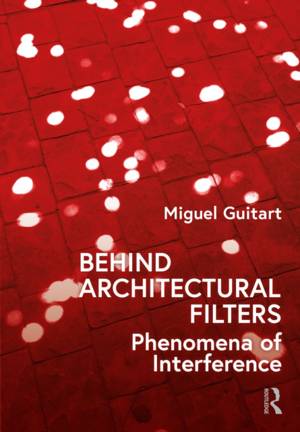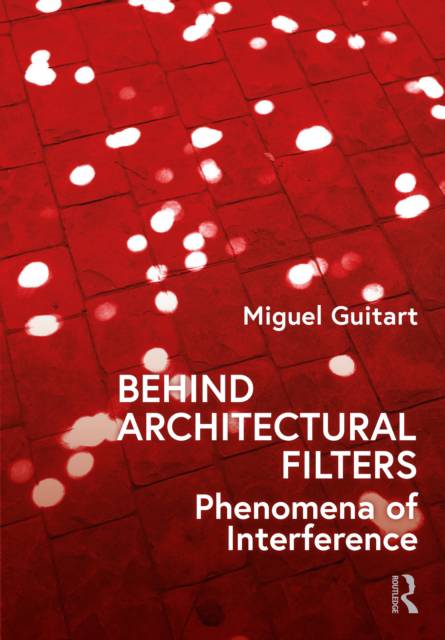
- Retrait gratuit dans votre magasin Club
- 7.000.000 titres dans notre catalogue
- Payer en toute sécurité
- Toujours un magasin près de chez vous
- Retrait gratuit dans votre magasin Club
- 7.000.000 titres dans notre catalogue
- Payer en toute sécurité
- Toujours un magasin près de chez vous
Description
Behind Architectural Filters: Phenomena of Interference explores the active role of architectural filters in generating physically and sensory charged spatial experiences. The book addresses how the material and the psychological strategies of permeable physical boundaries determine our perceptual experiences of the spaces we occupy.
This book explores architectural filters as connecting mechanisms capable of conjuring unique atmospheres that integrate the participation of several agents. The text analyzes ten case studies, grouped under five generative parameters: origin, density, thickness, function, and message. Each study investigates the main aspects of the filters' internal genesis and the character of the spaces informed by them. The cases illustrate a broad geographic, cultural, and historical scope, and connect past tradition with contemporary design. This methodology considers a historical and philosophical standpoint addressing vernacular, constructive, sustainable, and sensory considerations.
Written for students and scholars of architectural history, theory, art, design, and philosophy, Behind Architectural Filters: Phenomena of Interference offers an unprecedented perspective on the production of spatial atmospheres, bridging past and present while connecting thought and practice in a highly visual study.
Chapter 3 of this book is available for free in PDF format as Open Access from the individual product page at www.routledge.com. It has been made available under a Creative Commons Attribution-Non Commercial-No Derivatives 4.0 license.
Spécifications
Parties prenantes
- Auteur(s) :
- Editeur:
Contenu
- Nombre de pages :
- 278
- Langue:
- Anglais
Caractéristiques
- EAN:
- 9781032077482
- Date de parution :
- 25-03-22
- Format:
- Livre relié
- Format numérique:
- Genaaid
- Dimensions :
- 178 mm x 254 mm
- Poids :
- 719 g







